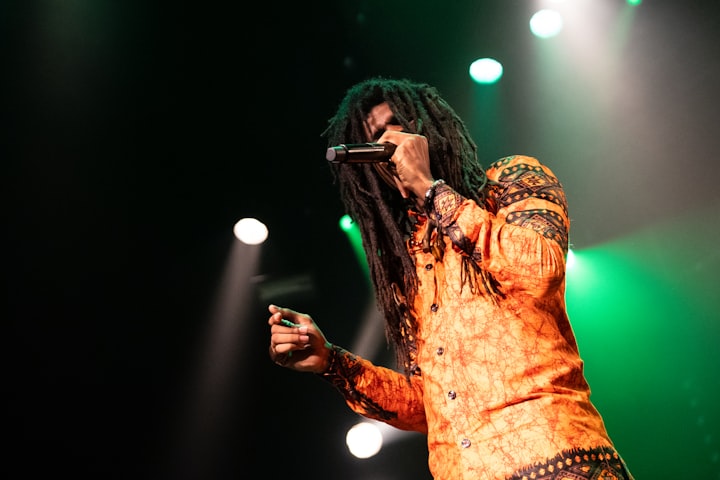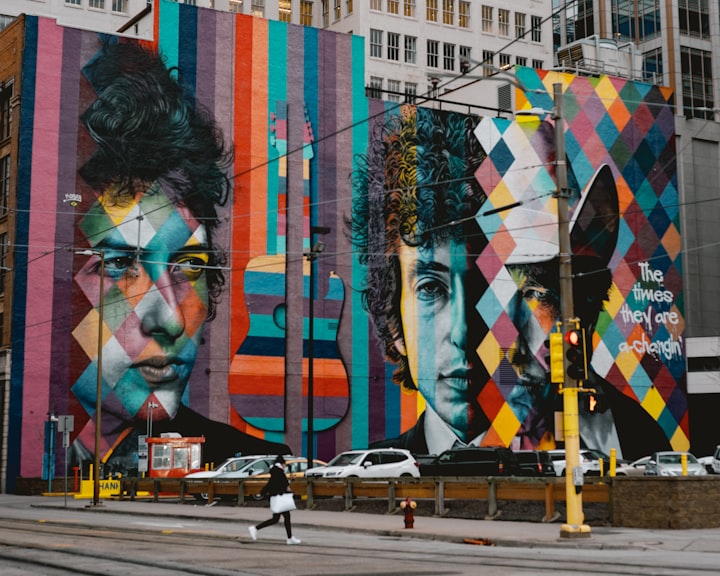
Part 1: Ska
Have you heard of Ska music? It originated in Jamaica in the late 1950s. Ska came before the more well-known musical style of Reggae.
Ska is a combined musical element of Caribbean Mento and Calypso with a bit of American Jazz and also Rhythm and Blues. It separates itself from other musical genres due to its walking bass line accented with rhythms on the upbeat.
In the early 1960s, Ska was the dominant music genre of Jamaica and was popular with and other nations as well, such as the British Commonwealth, and parts of the U.S.
Ska music was meant for dancing. It stands out because the music is upbeat, quick and exciting. The dancing is quite simple, fun, and sometimes comical.
Sometimes, the dancing is just a matter of jumping up and down.
Musically, Ska can be characterized with a drumbeat on the 2nd and 4th beats (in 4/4 time) and with the guitar hitting the 2nd, 3rd and 4th beats. Traditional Ska bands generally featured bass, drums, guitars, keyboards, horns with sax, trombone and trumpet being most common.
Music historians typically divide the history of Ska into three periods: the original Jamaican scene of the 1960s (First Wave); the English 2 Tone Ska revival of the late 1970s (Second Wave); and the third wave Ska movement, which started in the 1980s and rose to popularity in the US in the 1990s. Without a doubt Ska has set a musical standard for genres that follow it such as Reggae.
There have been some more modern bands that resurrected the Ska style of music. Here are a few examples:
Part 2: Reggae
“Reggae” comes from the term “rege-rege” which means “rags” or “ragged clothes”, and this gives you your first clue into the story behind Reggae music.
When it started out in Jamaica around the late 1960s, Reggae music was considered a rag-tag, hodge-podge of other musical styles, namely Jamaican Mento and contemporary Jamaican Ska music, along with American Jazz and Rhythm & Blues that was coming out of New Orleans and Memphis at the time.
Most listeners didn’t distinguish Reggae from Jamaican dancehall music or the slowed down version of ska music known as Rocksteady, until the band Toots and the Maytals came along. Their songs were a public notice that a new style of music had been born and was staking its claim on the musical frontier.
Reggae is different from its predecessors, Ska and Rocksteady by its slower tempo, the emphasis on the third beat, and the use of syncopation (stressing notes off the beat.) Besides its sound, Reggae music is frequently associated with the common themes in its lyrics. The earliest reggae lyrics spoke mostly of love, specifically romantic love between a man and a woman. But as the music and the musicians making it made their way into the 1970s, Reggae started taking on a heavy Rastafarian influence. Rastarafianism is a religion and social movement which began in Jamaica in the 1930s. Now the love being sung about was not just romantic love, but cosmic, spiritual love, the love of one’s fellow man, and of God, or “Jah,” in the Jamaican vernacular.
And when Reggae singers weren’t singing about love, they were singing about rebellion and revolution against the English colonial forces impeding that love, and the extreme violence, poverty, racism, and government oppression they were witnessing or experiencing on a regular basis.
When reggae music reached more popular international acclaim was after singer Jimmy Cliff released a movie called “The Harder They Come” with a powerful socio-political storyline and an equally strong Reggae soundtrack.
This sudden global attention and interest in the music paved the way for possibly reggae’s biggest superstar, Bob Marley, to become a worldwide legend, and the name most associated with the genre, hence his greatest hits album was appropriately named "Legend."
Today, Reggae music has spurred the innovation of a whole new range of musical styles, like modern Jamaican Dub, and been infused into many other popular genres, like hip-hop and rap. Yet still you can find bands in every corner of the world playing that authentic, roots Reggae like when it started out in Jamaica over 50 years ago.
Conclusion: Ska and Reggae have made their way into the hearts of other music styles, no doubt to influence styles yet to come.
Online Resource:
https://jamaicansmusic.com/learn/origins/ska
https://en.wikipedia.org/wiki/Reggae
About the Creator
Julie Lacksonen
Julie has been a music teacher at a public school in Arizona since 1987. She enjoys writing, reading, walking, swimming, and spending time with family.
Enjoyed the story? Support the Creator.
Subscribe for free to receive all their stories in your feed. You could also pledge your support or give them a one-off tip, letting them know you appreciate their work.
Reader insights
Outstanding
Excellent work. Looking forward to reading more!
Top insights
Compelling and original writing
Creative use of language & vocab
Expert insights and opinions
Arguments were carefully researched and presented
Eye opening
Niche topic & fresh perspectives
Heartfelt and relatable
The story invoked strong personal emotions






Comments
There are no comments for this story
Be the first to respond and start the conversation.